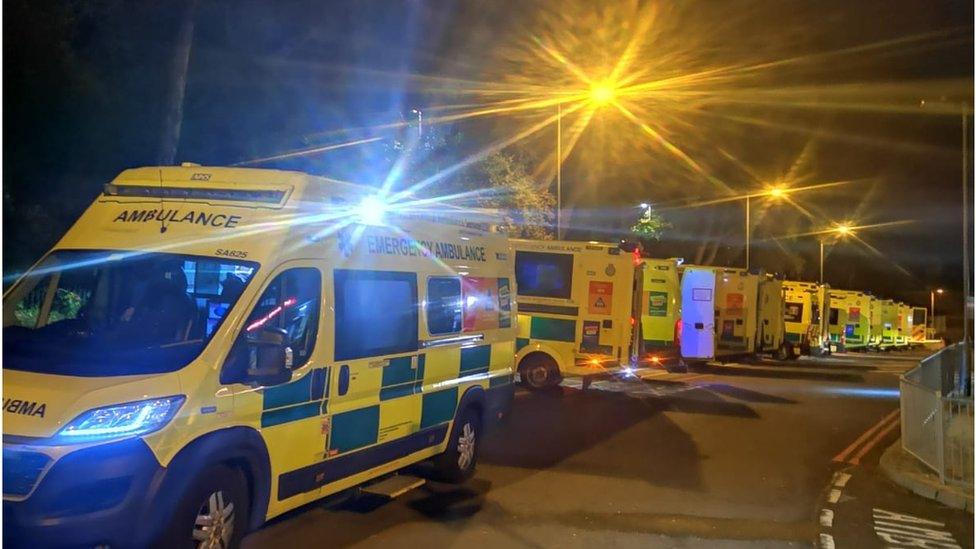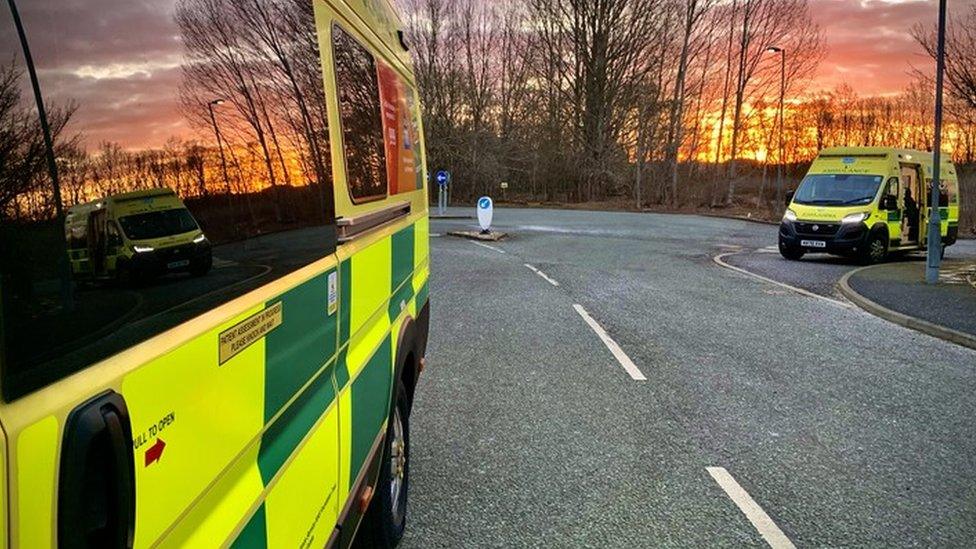South Central Ambulance Service seeks military help to cope with demand
- Published

A patient at a Portsmouth hospital reported 21 ambulances stuck in queues outside
A request for military help over Christmas has been made by an ambulance trust.
South Central Ambulance Service (SCAS), which serves Berkshire, Buckinghamshire, Oxfordshire, and Hampshire, hopes the assistance will provide 10 more ambulances per day.
Chief Operating Officer Paul Kempster said things were slowly improving, but that a difficult six weeks lay ahead.
Military support was previously given to the service in August.
The pressures on the trust were being discussed at the Oxfordshire Joint Health Overview & Scrutiny Committee earlier.
SCAS declared a critical incident at the end of October due to "extreme pressures" and an "overwhelming" number of calls.
It said it had faced a "very challenging period" since May.
Calls to 999 and 111 are about 50% above 2019 levels. Resources are 13% less than what is required, with staff sickness playing a part.
Apology
Director of operations Mark Ainsworth said staff were struggling with high demand "but also a long time spent at hospitals where we're delayed offloading those patients".
He said: "So we are experiencing some very long delays attending some of our lower grade patients, and for that I would like to apologise and just assure the public we're doing all we can to get to them as fast as we can."
The service has seen more than 6,500 hours lost to delays handing patients over to hospitals, almost half at hospitals in Portsmouth.
SCAS is currently not meeting response times either.
Mr Ainsworth said: "We are trying to prioritise those lifesaving calls which is a seven minute target, but we're not getting to those patients within seven minutes, so we are aware that patients are being posed at risk."
He said medical conditions among the elderly were also increasing call outs.
"They've not been seeking help for a long period of time [and] are now deteriorating at home," he added.
"They're struggling to get through to their GP or other health advisers, so they're calling 111 or 999 just to get that help they need."

Follow BBC South on Facebook, external, Twitter, external, or Instagram, external. Send your story ideas to south.newsonline@bbc.co.uk, external.
- Published31 October 2021

- Published29 June 2021
